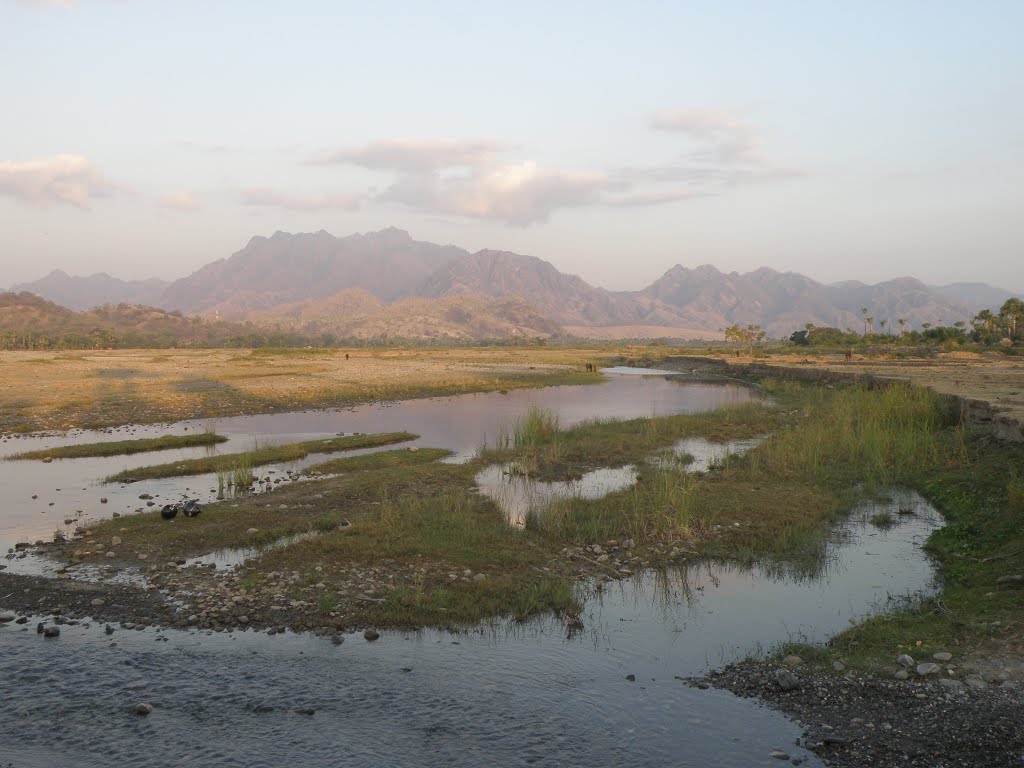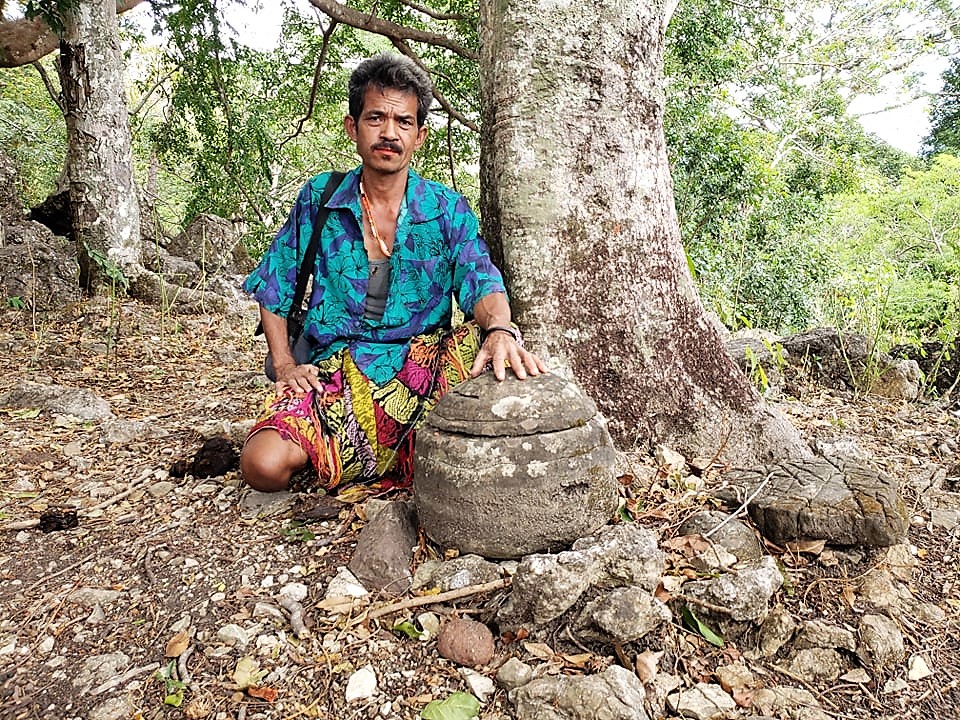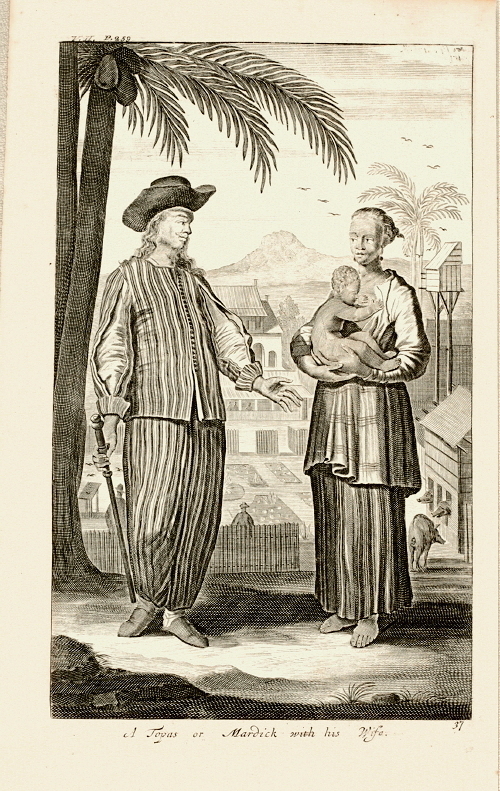|
Lifau
Lifau is a village and suco in the East Timor exclave of Oecusse District. The village is located west of the mouth of the Tono River. 1,938 people live in the suco. History Lifau was the first European settlement on the island of Timor. Dominican brothers carried on missionary work on the north coast of Timor after 1556. In 1641 they arrived at Lifau and baptized the royal family of Ambeno. A permanent Portuguese settlement arose in the 1650s, as many Portuguese moved from their old colonial seat Larantuka on Flores to Timor in response to the Dutch colonial settlement in Kupang in westernmost Timor (1653). Lifau remained the centre for Portuguese colonial activities for more than a century, and was headed by a governor after 1702. In 1769 the colonial capital was moved to Dili due to military aggression from the Eurasian Topasses who opposed the politics of the governor. After this date the place lost its significance, since the Topasses preferred to keep their residence i ... [...More Info...] [...Related Items...] OR: [Wikipedia] [Google] [Baidu] |
Tono River
The Tono River ( pt, Ribeira de Tono or , tet, Mota Tono) is the principal river of Oecusse, an exclave of East Timor. The river and its major tributaries flow generally north, through the centre of the exclave, into the Savu Sea, reaching the sea near Lifau. Its alluvial flood plain in Pante Macassar administrative post is the main rice-producing place in Oecusse. Course The river is one of East Timor's few perennial streams. Its primary headwaters are in the portion of East Timor's central mountains located within the southern ends of Nitibe and Oesilo administrative posts in Oeucusse. In general, the river's tributaries flow from the headwaters in a northeasterly direction, mostly along the border between Oesilo and Pante Macassar administrative posts, until two of the tributaries (the Ekai and Abanel Rivers, respectively) merge near the northwesternmost point of '' Suco'' in Oesilo to form the river itself. From there, the river continues, as the principal river of ... [...More Info...] [...Related Items...] OR: [Wikipedia] [Google] [Baidu] |
Oecusse
Oecusse (also variously ''Oecussi'', ''Ocussi'', ''Oekussi'', ''Oekusi'', ''Okusi'', ''Oé-Cusse''), also known as Oecusse-Ambeno (; ) and formerly just Ambeno, officially the Special Administrative Region Oecusse-Ambeno (), is an exclave, municipality (formerly a district) and the only Special Administrative Region (SAR) of East Timor. Located on the north coast of the western portion of Timor, Oecusse is separated from the rest of East Timor by West Timor, Indonesia, which is part of the province of East Nusa Tenggara. West Timor surrounds Oecusse on all sides except the north, where the exclave faces the Savu Sea. The capital of Oecusse is Pante Macassar, also called ''Oecussi Town'', or formerly, in Portuguese Timor, ''Vila Taveiro''. Originally ''Ambeno'' was the name of the former district and ''Oecussi'' its capital. Etymology ''Oecusse'' is the traditional name of Pante Macassar, the present day capital of the Special Administrative Region, and its environs. The loc ... [...More Info...] [...Related Items...] OR: [Wikipedia] [Google] [Baidu] |
Oecusse District
Oecusse (also variously ''Oecussi'', ''Ocussi'', ''Oekussi'', ''Oekusi'', ''Okusi'', ''Oé-Cusse''), also known as Oecusse-Ambeno (; ) and formerly just Ambeno, officially the Special Administrative Region Oecusse-Ambeno (), is an exclave, municipality (formerly a district) and the only Special Administrative Region (SAR) of East Timor. Located on the north coast of the western portion of Timor, Oecusse is separated from the rest of East Timor by West Timor, Indonesia, which is part of the province of East Nusa Tenggara. West Timor surrounds Oecusse on all sides except the north, where the exclave faces the Savu Sea. The capital of Oecusse is Pante Macassar, also called ''Oecussi Town'', or formerly, in Portuguese Timor, ''Vila Taveiro''. Originally ''Ambeno'' was the name of the former district and ''Oecussi'' its capital. Etymology ''Oecusse'' is the traditional name of Pante Macassar, the present day capital of the Special Administrative Region, and its environs. The loc ... [...More Info...] [...Related Items...] OR: [Wikipedia] [Google] [Baidu] |
Topasses
Topasses (Tupasses, Topas, Topaz) were a group of people led by the two powerful families – Da Costa and Hornay – that resided in Oecussi and Flores. The Da Costa families were descendants of Portuguese Jewish merchants and Hornay were Dutch. The origins The etymology of the name is obscure. It might come from the Tamil term ''tuppasi'', "bilingual" or "interpreter". But it has also been associated with the Hindi word ''topi'' (hat) which refers to the characteristic hat worn by the men of this community as a marker of their cultural attachment to the European community. Hence, they are also referred to as ''gente de chapeo'' in Portuguese accounts or as ''gens à chapeau'' in French accounts. It partly overlapped with the Dutch concept mardijker, "free men", who also usually had a Portuguese cultural background, but had no European blood in their veins. While the mardijkers served under the Dutch colonial authorities, the topasses of Timor were staunchly opposed to the ... [...More Info...] [...Related Items...] OR: [Wikipedia] [Google] [Baidu] |
Sucos Of East Timor
The administrative posts (former subdistricts) of East Timor are subdivided into 442 ''sucos'' ("villages") and 2,336 ''aldeias'' ("communities").http://www.unmiset.org/legal/RDTL-Law/RDTL-Minist-Orders/Decree-Order-2003-6.pdf List of sucos by municipality Aileu Municipality * Aileu Administrative Post # Suco Aisirimou # Suco Bandudatu # Suco Fahiria # Suco Fatubosa # Suco Hoholau # Suco Lahae # Suco Lausi # Suco Liurai # Suco Malere # Suco Saboria # Suco Seloi Kraik * Laulara Administrative Post # Suco Fatisi # Suco Kotolau # Suco Madabeno # Suco Talitu # Suco Tohumeta * Lequidoe Administrative Post # Suco Acubilitoho # Suco Bereleu # Suco Betulau # Suco Fahisoi # Suco Fautrilau # Suco Manukasa # Suco Namleso * Remexio Administrative Post # Suco Acumau # Suco Fadabloko # Suco Fahisoi # Suco Faturasa # Suco Hautuho # Suco Liurai # Suco Maumeta # Suco Tulatakeu Ainaro Municipality * Ainaro Administrative Post # Suco Ainaro # Suco Cassa # Suco Manut ... [...More Info...] [...Related Items...] OR: [Wikipedia] [Google] [Baidu] |
Dili
Dili (Portuguese/Tetum: ''Díli'') is the capital, largest city of East Timor and the second largest city in Timor islands after Kupang (Indonesia). It lies on the northern coast of the island of Timor, in a small area of flat land hemmed in by mountains. The climate is tropical, with distinct wet and dry seasons. The city has served as the economic hub and chief port of what is now East Timor since its designation as the capital of Portuguese Timor in 1769. It also serves as the capital of the Dili Municipality, which includes some rural subdivisions in addition to the urban ones which make up the city itself. Dili's growing population is relatively youthful, being mostly of working age. The local language is Tetum, however residents include many internal migrants from other areas of the country. The initial settlement was situated in what is now the old quarter in the eastern side of the city. Centuries of Portuguese rule were interrupted in World War II, when Dili became t ... [...More Info...] [...Related Items...] OR: [Wikipedia] [Google] [Baidu] |
Larantuka
Larantuka () is a ''kecamatan'' (district) and the seat capital of East Flores Regency, on the eastern end of Flores Island, East Nusa Tenggara, Indonesia. Like much of the region, Larantuka has a strong a colonial Portuguese influence. The town had 37,348 inhabitants at the 2010 census and 40,828 at the 2020 census. This overwhelmingly (95.4%) Roman Catholic area enjoys some international renown for its Holy Week celebrations. Indonesia Tourism: Larantuka (also known as Ende Malay), a local over 80% |
Pante Macassar
Pante Macassar ( pt, Pante Macassar, ) is a city in the Pante Macassar Administrative Post, Pante Macassar administrative post on the north coast of East Timor, to the west of Dili, the nation's capital. It has a population of 4,730 (Stand 2006). It is the capital of the Oecusse District, Oecusse exclave (former Oecussi-Ambeno). The name literally means "beach of Makassar," alluding to the erstwhile trade with Makasar, Makassar in Sulawesi (Celebes). Locally Pante Macassar is known also as "Oecussi," which is commonly translated as "water pot", and was the name of one of the two original kingdoms that form the exclave. The other was Ambeno. During the Portuguese colonisation, the city was also known as ''Vila Taveiro.'' Lifau, in the outskirts of the present city, was the place where the Portugal, Portuguese first disembarked on Timor and was the first capital of Portuguese Timor. It continued as capital until 1769, when that was transferred to Dili because of constant atta ... [...More Info...] [...Related Items...] OR: [Wikipedia] [Google] [Baidu] |
East Timor
East Timor (), also known as Timor-Leste (), officially the Democratic Republic of Timor-Leste, is an island country in Southeast Asia. It comprises the eastern half of the island of Timor, the exclave of Oecusse on the island's north-western half, and the minor islands of Atauro and Jaco. Australia is the country's southern neighbour, separated by the Timor Sea. The country's size is . Dili is its capital and largest city. East Timor came under Portuguese influence in the sixteenth century, remaining a Portuguese colony until 1975. Internal conflict preceded a unilateral declaration of independence and an Indonesian invasion and annexation. Resistance continued throughout Indonesian rule, and in 1999 a United Nations–sponsored act of self-determination led to Indonesia relinquishing control of the territory. On 20 May 2002, as ''Timor-Leste'', it became the first new sovereign state of the 21st century. The national government runs on a semi-presidential system, w ... [...More Info...] [...Related Items...] OR: [Wikipedia] [Google] [Baidu] |
Kupang
Kupang ( id, Kota Kupang, ), formerly known as Koepang, is the capital of the Indonesian province of East Nusa Tenggara. At the 2020 C ensus, it had a population of 442,758; the official estimate as at mid 2021 was 455,850. It is the largest city and port on the island of Timor, and is a part of the Timor Leste-Indonesia-Australia Growth Triangle free trade zone. Geographically, Kupang is the southernmost city in Indonesia. History Early history and Portuguese domination Kupang was an important port and trading post during the Portuguese and Dutch colonial eras. There are still ruins and remnants of the colonial presence in the city. Representatives of the Dutch East India Company (VOC) first encountered Kupang in 1613 after having conquered the Portuguese fort on the island of Solor. At this time the area of the city was governed by a Raja of the Helong tribe, who claimed descent from the island of Ceram in the Maluku archipelago. Kupang occupied an ideal strategic ... [...More Info...] [...Related Items...] OR: [Wikipedia] [Google] [Baidu] |
Populated Places Established In The 1650s
Population typically refers to the number of people in a single area, whether it be a city or town, region, country, continent, or the world. Governments typically quantify the size of the resident population within their jurisdiction using a census, a process of collecting, analysing, compiling, and publishing data regarding a population. Perspectives of various disciplines Social sciences In sociology and population geography, population refers to a group of human beings with some predefined criterion in common, such as location, race, ethnicity, nationality, or religion. Demography is a social science which entails the statistical study of populations. Ecology In ecology, a population is a group of organisms of the same species who inhabit the same particular geographical area and are capable of interbreeding. The area of a sexual population is the area where inter-breeding is possible between any pair within the area and more probable than cross-breeding with in ... [...More Info...] [...Related Items...] OR: [Wikipedia] [Google] [Baidu] |
Populated Places In Oecusse
Population typically refers to the number of people in a single area, whether it be a city or town, region, country, continent, or the world. Governments typically quantify the size of the resident population within their jurisdiction using a census, a process of collecting, analysing, compiling, and publishing data regarding a population. Perspectives of various disciplines Social sciences In sociology and population geography, population refers to a group of human beings with some predefined criterion in common, such as location, race, ethnicity, nationality, or religion. Demography is a social science which entails the statistical study of populations. Ecology In ecology, a population is a group of organisms of the same species who inhabit the same particular geographical area and are capable of interbreeding. The area of a sexual population is the area where inter-breeding is possible between any pair within the area and more probable than cross-breeding with ind ... [...More Info...] [...Related Items...] OR: [Wikipedia] [Google] [Baidu] |









